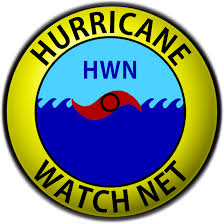Amateur Radio operators activated on Sunday, August 20, 2023 to
provide communications and information for Tropical Storm Hilary. As
of mid-morning Sunday, the system was moving up the Baja Peninsula
of Mexico, expected to cross into Southern California. Heavy rains
were falling in San Diego, and local media reported that 250 airline
flights had been canceled.
Amateur radio operations began Sunday morning. The WX4NHC amateur
radio station – https://w4ehw.fiu.edu/ – at the National Hurricane
Center was on air. “WX4NHC will be on the air on the Hurricane Watch
Net frequencies of 14.325 MHz and 7.268 MHz depending on
propagation. We will also be on VoIP Hurricane Net (IRLP node 9219 /
EchoLink WX-TALK Conference node 7203, http://www.voipwx.net/).
“We will also be monitoring WinLink reports via wx4nhc@winlink.org
(subject line must contain //WL2K),” wrote WX4NHC Amateur Radio
Assistant Coordinator Julio Ripoll, WD4R.
The Hurricane Watch Net (HWN) was also activated Sunday morning. “We
will remain active until our services are no longer required. This
system does have a good chance of crossing into California as a
Tropical Storm. If so, it will be the first Tropical Storm to hit
California since 1939,” wrote net manager Bobby Graves, KB5HAV.
HWN seeks reports to relay to the National Hurricane Center in
Miami. They have operators who are fluent in English and Spanish to
take reports. “Such weather information we look for is maximum
sustained winds, winds gusts, wind direction, barometric pressure,
rainfall amount – how much over x-amount of time, storm surge, and
damage. Should you have any outgoing Health and Welfare Traffic
before, during, or after this event, we are happy to assist as we
work closely with the Salvation Army Team Emergency Radio Network
(SATERN),” wrote Graves.
HWN also exists to provide backup communications to official
agencies such as emergency operations centers, Red Cross officials,
and storm shelters in the affected area and relays damage reports.
The primary frequencies the net uses center on 14.325 MHz and 7.268
MHz, depending on propagation. HWN thanks radio amateurs for
yielding those frequencies during operation. “It certainly makes our
job easier, and I know those in the affected area appreciate it as
well,” said Graves.
ARRL will continue to monitor the situation and update its various
social media outlets. HQ staff members are in contact with WX4NHC,
The Hurricane Watch Net, and VoIP Hurricane Net officials.









 Total views : 1362453
Total views : 1362453 Who's Online : 6
Who's Online : 6